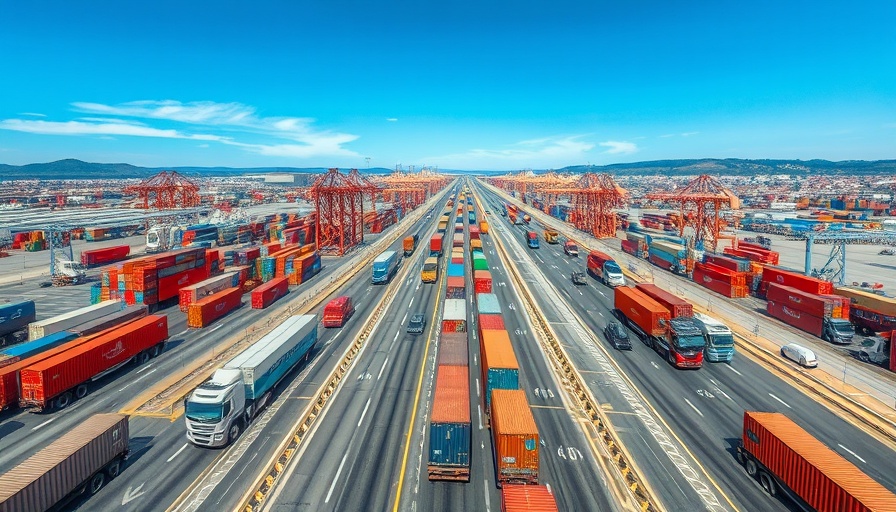
The Economic Impact of the U.S.-China Trade War on Trucking
The escalating trade war between the United States and China has hit the Port of Oakland hard, stifling business activity and causing significant stress among local trucking companies. Bill Aboudi, a notable truck service operator, highlighted this turbulence by pointing out the visible reduction in imports and activity at his facility. Over the last few months, his orders have plummeted by more than 70%, a stark indicator of the evolving dynamics in international trade. Increasing tariffs have led to uncertainty, with local truckers bearing the brunt of these economic changes.
The Ripple Effect on the Local Economy
The implications of this downturn extend far beyond the trucking businesses. With China accounting for nearly 29% of the Port of Oakland's trade, the economic health of a vast network that includes logistics, shipping, and retail could be jeopardized. As imports continue to falter, experts predict that the region could face substantial job losses, which would have a cascading effect on local households. Ryan Petersen, CEO of Flexport, described the risk to U.S. economic activity as potentially reaching $2 trillion if tariffs remain high. Given such stakes, community support for local businesses is crucial during this economic downturn.
Anticipating Future Trends in Trade
As the trade war continues, both businesses and consumers must adapt to an unpredictable environment. Flexport has noted that approximately 60% of its clients have either reduced their import bookings or ceased orders altogether, showcasing a keen shift in how businesses approach sourcing and shipping. This behavior illustrates not only a reaction to current tariffs but also a larger trend toward resilience in supply chain networks. Preparedness and adaptability may become key survival strategies for trucking companies faced with fluctuating cargo capacities and canceled shipments.
The Psychological Toll on Truckers
The human element of this crisis is highlighted by the emotional toll it takes on truckers and logistics staff. Many in the industry are experiencing heightened levels of stress and uncertainty. Feeling “caught in the crossfire,” truckers like Aboudi are doing their best to navigate this tumultuous landscape. Recognizing the psychological impacts of economic strain is essential, as stressful working conditions can affect both personal health and job performance. Mental health support for workers in high-stress industries is more important now than ever.
Community Response and Support Measures
As the crisis unfolds, community support for those in the trucking and logistics sectors can manifested in various ways. Local chambers of commerce are organizing support networks, facilitating discussions on how to bolster small businesses affected by the trade war. Furthermore, initiatives that encourage local spending can help stabilize the economy during this volatile period. Collective action, whether by promoting local businesses or advocating for favorable trade policies, could also amplify the voices of those struggling the most.
Call to Action: Support Your Local Trucking Industry
In these challenging times, it's imperative for communities to band together in support of their local industries. By choosing local services and advocating for fair trade practices, we can contribute to a more resilient economy. Awareness and action could play pivotal roles in mitigating the impact of the trade war on our community. Let’s unite to support our local businesses amidst these economic challenges.
 Add Row
Add Row  Add
Add 




 Add Row
Add Row  Add
Add 

Write A Comment